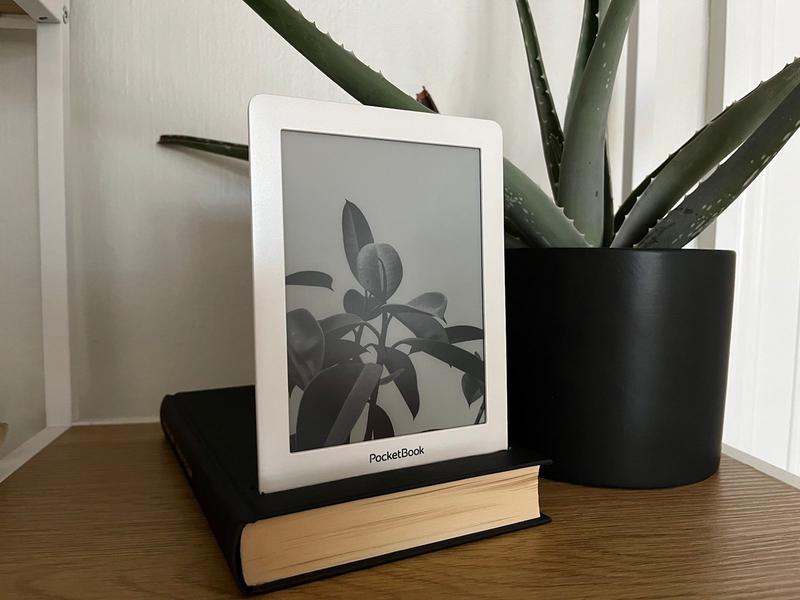For those who read often, e-readers are a great niche device that can help prevent eye fatigue with their e-ink displays especially when compared to a backlit display like a tablet or smartphone, all while taking up minimal space unlike a stack of real books. But for all their perks, there are still plenty of reasons to maintain a library of bound paper volumes. For those who have turned back to books or whose e-readers aren’t getting the attention they once did, there are plenty of things to do with them like this e-book picture frame.
The device started life as a PocketBook Basic Touch, or PocketBook 624, a fairly basic e-reader from 2014, but at its core is a decent ARM chip that can do many more things than display text. It also shipped running a version of Linux, which made it fairly easy to get a shell and start probing around. Unlike modern smart phones this e-reader seems to be fairly open and able to run some custom software, and as a result there are already some C++ programs available for these devices. Armed with some example programs, [Peter] was able to write a piece of custom software that displays images from an on-board directory and mounted the new picture display using an old book.
There were a number of options for this specific device that [Peter] explored that didn’t pan out well, like downloading images from the internet to display instead of images on the device, but in the end he went with a simpler setup to avoid feature creep and get his project up and running for “#inktober”, a fediverse-oriented drawing challenge that happened last month. While not strictly in line with a daily piece of hand-drawn artwork, the project still follows the spirit of the event. And, for those with more locked-down e-readers there’s some hope of unlocking the full functionality of older models with this FOSS operating system.
















I use an inkplate 10, with a library of ebooks that I, uh, *acquired* for free. It’s actually helped me keep off my laptop for 3/4 my waking hours. Definitely do recommend, although you need to roll the software yourself. The kind of device in the article is attractive, but having to work around already-flashed linux seems like too much to ask for me.
The open use of Linux was why I also started with the pocketbook brand of E-readers. They even have their own official repositories with source code for their extra applications such as the games. There are over 450 repositories for “pocketbook” on github.
I don’t know why this e-reader is considered “obsolete”. It’s not like you need the latest and greatest hardware for reading books. Newer e-books tend to be just as slow. They are fine for turning a page every few minutes while reading a book (they do it quicker and easier then those obsolete dead tree format books) but for quickly browsing though datasheets to find that one page you are interested in they are not very useful. Also,PDF is a horrible format, and the “guessing” that e-readers have to do to re-format them on the screen that is not able to show a whole .pdf page also does not work very well. Especially with columns and pictures, as is common in datasheets.
I still use a 2010 kindle (with a new battery) and it does its job as good as 13 years ago. The whole idea of an ebook reader is to be a specialty device which doesn’t provide distracting functionality.
I wonder what would be a non “fairly basic” reader to the author?
I still use my Kindle K3 (keyboard) from about the same time as yours. It still performs perfectly. It has features the newer Kindles don’t. I bought it to read books on and have done so hundreds of times. I don’t need or want all the bells and whistles available on the newer Kindles. Classic, old Kindles rock!
Newer ereaders have noticeably sharper and higher-contrast displays with…I guess noticeably better, but definitely measurably better refresh times. It’s a modest boost, but it’s there. Water resistance is a killer feature for bath readers. Some people really love backlights, which weren’t included in the first few generations.
But yeah, they don’t really go obsolete in the sense of just not being usable anymore for current material. I assume that was just fewer words than “old one they had lying around that had been supplanted by a newer model they got for Christmas last year.”
Obsolete?
I wish I’d known that before I bought (£52) a replacement screen for my daughter-in-law’s Pocketbook. It contains lots of books that she bought that mean a lot to her.